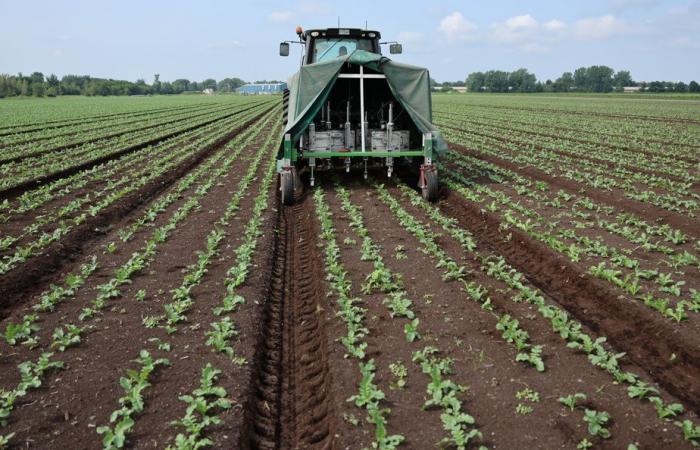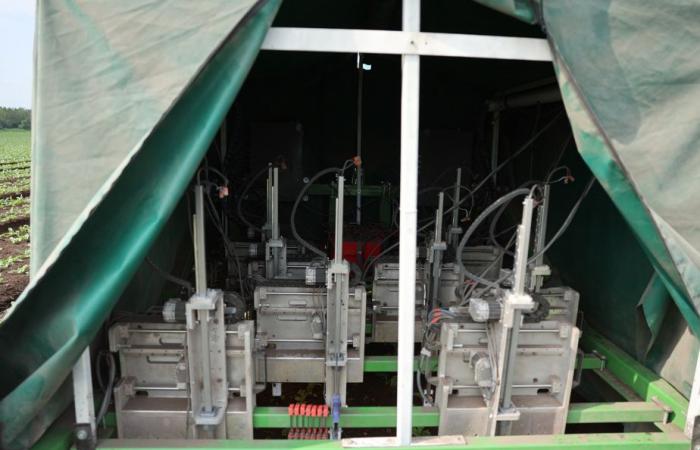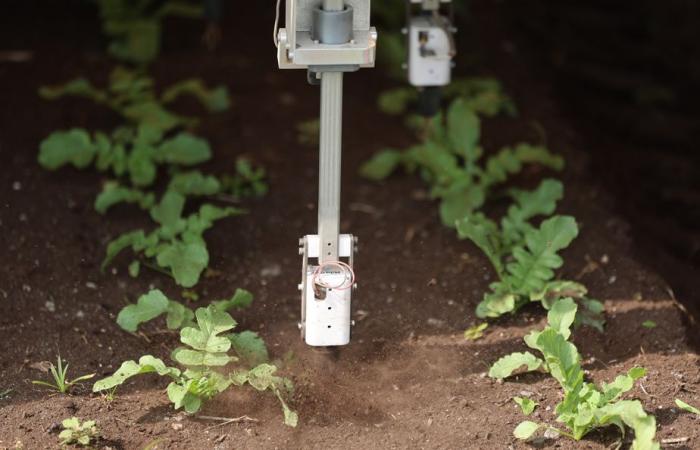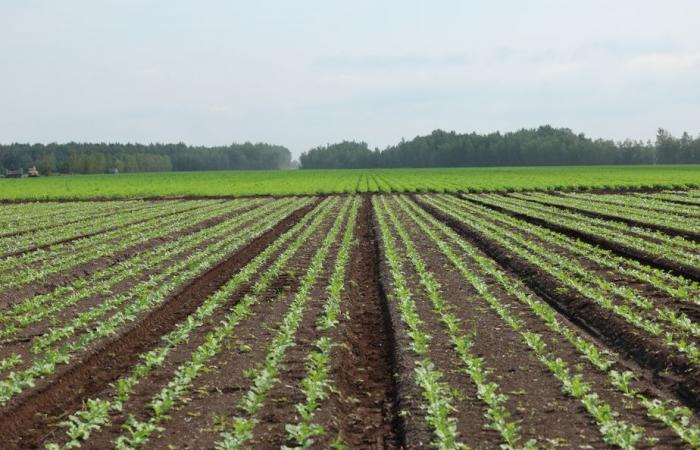Students from the University of Sherbrooke have developed a tool that allows market gardeners to rid their fields of weeds more quickly and without resorting to herbicides.
Posted at 12:00 a.m.
During an internship in an agricultural environment during his studies in robotics engineering, Simon Michaud came across the following observation: the only solution against our weeds is herbicides. “It’s a little annoying,” comments the original Sherbrooke resident.
Upsetting, because these chemicals are often singled out for their harmful impacts on biodiversity. Quebec has also set a target of reducing the volume of pesticides sold in the province by 15% between 2020 and 2030.
The other, much greener solution is to uproot each weed manually. Only problem: it is very expensive in labor.
PHOTO MARTIN CHAMBERLAND, THE PRESS
Depending on the needs of farmers, dozens of robotic arms can be attached to the same chassis, which will then be attached behind a tractor which will go through the rows of vegetables in search of weeds.
“It took [à l’agriculteur] dozens and dozens of workers who spent the entire summer on all fours pulling weeds,” says Simon Michaud.
“Labor can be 40% to 70% of our costs, depending on the type of crop,” confirms agronomist Guillaume Cloutier, who owns the Delfland market garden farm in Napierville.
A robotic arm
It was by wanting to resolve this problem that the Désherbex company was born. It started out as a simple project in an entrepreneurship class. Five years later, after a number of prizes, scholarships and hours of work, it is a tool combining artificial intelligence (AI), robotic arms and modular compartments.
The most beautiful thing we have managed to invent is a robotic arm, with a camera, capable of pulling up the weeds in front of it.
Simon Michaud, student at the University of Sherbrooke
The robotic arm never works alone. Depending on the needs of farmers, dozens of robotic arms can be attached to the same chassis, which will then be attached behind a tractor which will go through the rows of vegetables in search of weeds.
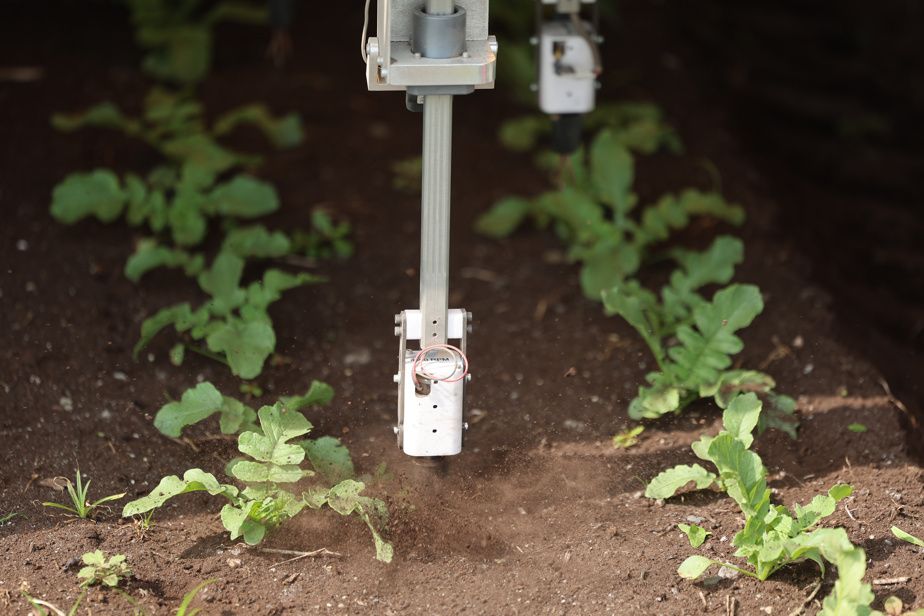
PHOTO MARTIN CHAMBERLAND, THE PRESS
How does this arm distinguish a weed from a cultivated vegetable? By means of an AI tool that controls the robotic arms by seeing through the camera.
How does this arm distinguish a weed from a cultivated vegetable? By means of an AI tool that controls the robotic arms by seeing through the camera. Almost like a human would, but without the back pain.
This scalable AI tool, fully developed by the team, is able to adapt to growing crops, as well as constantly changing weeds.
Désherbex is also adjustable according to the width of the rows and the dimensions of the field, since it is designed in modules. This is one of the reasons why agricultural producer Guillaume Cloutier sees “a lot of potential” in this technology.
It is also in these fields that the tool designed by the Sherbrooke company spent part of the summer.
Herbicides
Désherbex’s objective is to carry out weeding “earlier and faster”, indicates Simon Michaud. By adopting this method, we avoid using as many herbicides afterwards.
“Reducing the use of pesticides is 100% what we advocate in classes,” explains Mathieu Leduc, agronomist and lecturer at the Faculty of Agriculture and the Environment at the McGill University.
There are several reasons why we want to restrict the use of pesticides. First, the more farmers use it, the more resistant the plants become to it.
According to the Quebec government’s Sage-Pesticides directory, there are at least six weeds resistant to glyphosate, the best-selling herbicide in the world.
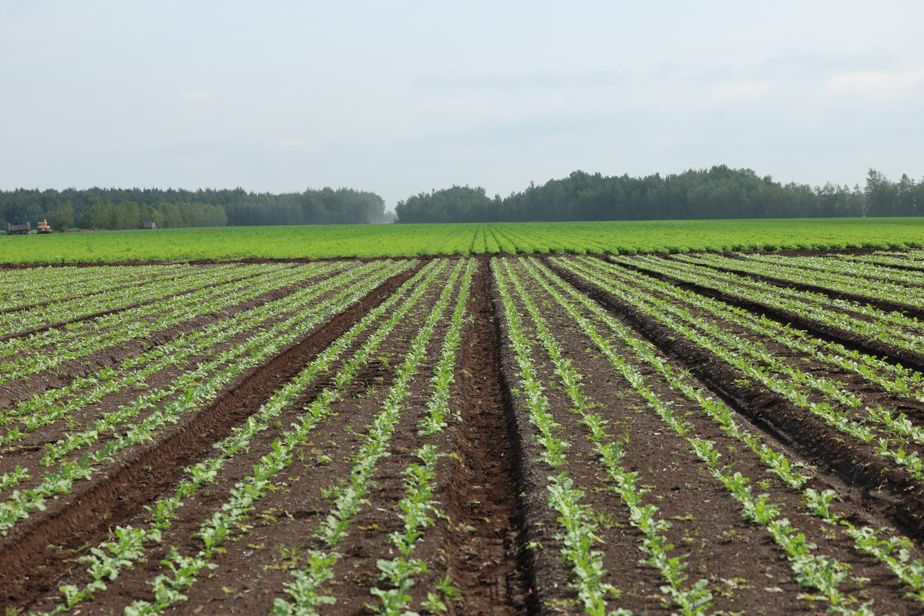
PHOTO MARTIN CHAMBERLAND, THE PRESS
According to the Quebec government’s Sage-Pesticides directory, there are at least six weeds resistant to glyphosate, the best-selling herbicide in the world.
Mathieu Leduc compares their use to that of antibiotics. “When the doctor knows you have an infection, he prescribes the antibiotic. We don’t give antibiotics all year round. »
Then, their use represents a risk for all workers who are exposed to them. Particularly for those responsible for diluting the concentrated product in the solvent and for those returning to the field after spreading.
Increased danger with climate change
The greatest harmful effects, still little known, of herbicides on the ecosystem occur when the products leave the fields and land in forests, watercourses and groundwater, explains the agronomist.
Due to the drainage effect, it is when there are strong winds and intense rain that we find the most pesticides in nature.
“For several years, our precipitation, instead of falling over a week, has fallen over two hours,” worries Mathieu Leduc. With climate change, weather events are becoming more and more intense. »
Simon Michaud hopes that Désherbex will be able to “change habits and reduce the layers and types of herbicides used” by offering an effective and less expensive solution to farmers.

